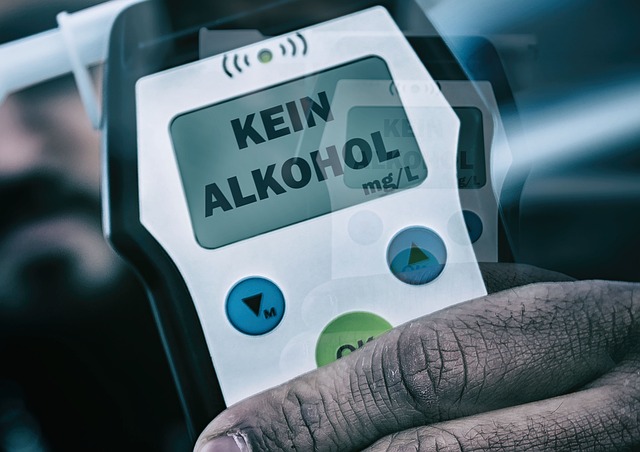Ride-sharing drivers prioritize passenger safety through advanced vehicle features like airbags, ABS, and lane departure warnings, adhering to strict DUI laws. Background checks, drug tests, and training ensure capable drivers. Customer feedback systems promote accountability, preventing DUI incidents. Strict legal consequences for negligence or DUI infractions underscore the importance of Vehicle Safety Features and DUI Law compliance.
In the dynamic landscape of ride-sharing services, ensuring passenger safety and driver accountability is paramount. This article delves into critical aspects that underpin responsible ride-sharing operations. We explore vehicle safety features designed to protect both passengers and drivers, delve into stringent DUI laws governing these professionals, and scrutinize comprehensive background checks and training programs. Additionally, we examine customer feedback systems that drive quality service and discuss the legal consequences of negligence or violations.
- Vehicle Safety Features: Protecting Passengers and Drivers
- DUI Laws: Strict Regulations for Ride-Sharing Drivers
- Accountable Driving: Background Checks and Training
- Ensuring Quality Service: Customer Feedback Systems
- Legal Consequences: Penalties for Negligence or Violations
Vehicle Safety Features: Protecting Passengers and Drivers

Ride-sharing drivers play a crucial role in ensuring passenger safety, and one of the primary aspects is their vehicle’s safety features. Modern vehicles are equipped with advanced technologies designed to protect both occupants and other road users. These include airbag systems, anti-lock braking mechanisms (ABS), electronic stability control (ESC), and lane departure warnings. Such features significantly reduce the risk of accidents and mitigate potential injuries in case of collisions.
Additionally, vehicle safety features go hand in hand with understanding and adhering to DUI laws. Drive-sharing companies often have strict policies against drivers with a history of drunk or impaired driving. They utilize technology to monitor driver behavior, ensuring that riders are safe. This includes using GPS tracking and in-app monitoring systems to detect unusual driving patterns, which may indicate intoxication. By implementing these safety measures, ride-sharing services contribute to creating a responsible and accountable transportation ecosystem, fostering trust among passengers.
DUI Laws: Strict Regulations for Ride-Sharing Drivers

Ride-sharing drivers, who are often considered an extension of the companies they work for, are subject to strict regulations, especially when it comes to driving under the influence (DUI) laws. These rules are in place to ensure vehicle safety features and maintain public trust. Not only do ride-sharing companies conduct extensive background checks on their drivers, but they also mandate random drug and alcohol tests to prevent any potential misuse of substances while operating a vehicle.
The implications of DUI for ride-sharing drivers can be severe, often leading to immediate termination from the company and legal repercussions. This is because these laws are designed to uphold the highest standards of safety, ensuring that passengers are not only protected during their journeys but also that drivers remain responsible and fit to provide this service.
Accountable Driving: Background Checks and Training

Ride-sharing drivers play a pivotal role in ensuring passenger safety, making vehicle safety features an indispensable aspect of their work. Background checks are a fundamental first step to verify driver suitability and history, including any previous offenses or disqualifiers. These checks should encompass not just criminal records but also adherence to DUI laws, as impaired driving can have catastrophic consequences.
Comprehensive training programs are equally vital. They equip drivers with the knowledge to operate vehicles safely, maintain them effectively, and handle emergencies. Training in defensive driving techniques, understanding vehicle systems, and recognizing potential hazards contributes to a culture of accountability. By integrating these safety measures, ride-sharing companies can foster a responsible driver community, enhancing overall passenger trust and security.
Ensuring Quality Service: Customer Feedback Systems

Ensuring quality service in ride-sharing involves implementing robust customer feedback systems. These platforms allow riders to rate drivers and provide detailed reviews, fostering accountability among drivers. By encouraging open communication, companies can quickly address concerns related to vehicle safety features, ensuring every trip is secure. This proactive approach also helps in preventing DUI (drunk driving under influence) incidents by creating a culture of responsibility where drivers are mindful of their conduct and the implications for their ratings.
Customer feedback systems empower both riders and drivers, promoting transparency. Riders can share experiences related to vehicle conditions, driver behavior, and safety measures, while drivers receive valuable insights on areas for improvement. This mutual exchange fosters a positive cycle where drivers strive to maintain high standards, enhancing the overall ride-sharing experience and maintaining compliance with safety regulations.
Legal Consequences: Penalties for Negligence or Violations

Ride-sharing drivers, like all vehicle operators, are subject to legal consequences if found negligent or in violation of traffic laws. The consequences can be severe, especially when it comes to vehicle safety features and DUI (Driving Under the Influence) regulations. Companies like Uber and Lyft have strict policies regarding driver behavior, and they often collaborate closely with local law enforcement to ensure compliance.
Penalties for negligence may include fines, license suspension, or even criminal charges depending on the severity of the incident. For instance, if a ride-sharing driver is found to have ignored safety features like seatbelts or child restraints, or if they’re involved in an accident due to distracted driving, they could face substantial legal repercussions. Similarly, any violation of DUI laws can lead to severe penalties, including jail time and significant fines, as these regulations are designed to protect public safety and prevent impaired driving.
Ride-sharing services rely on driver accountability to ensure safe and reliable transportation. By implementing robust vehicle safety features, strict adherence to DUI laws, comprehensive driving background checks, and customer feedback systems, these platforms can maintain high standards. Moreover, understanding the legal consequences of negligence or violations encourages drivers to prioritize safety. Ultimately, these measures contribute to a secure and dependable ride-sharing ecosystem.






